Best face masks for people with acne-prone skin
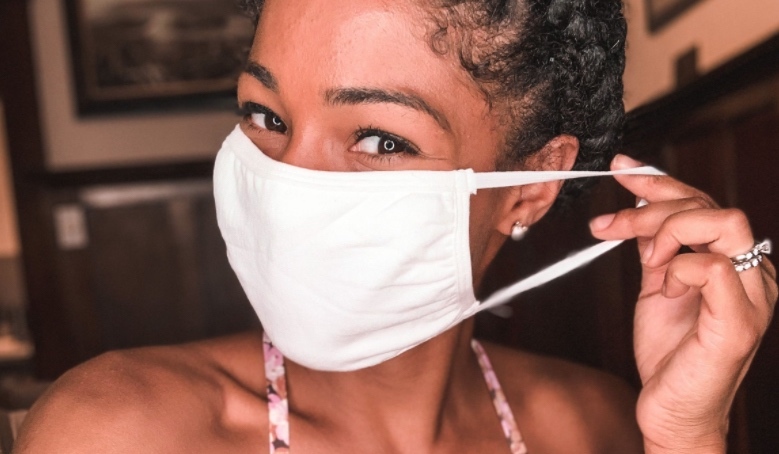
Managing Maskne: Choosing the Right Face Mask for Acne-Prone Skin
Wearing a face mask can be challenging, especially for those with acne-prone skin. Heat, humidity, and a lack of airflow under masks create an ideal environment for breakouts, commonly referred to as "maskne." Here's what you need to know about preventing and managing mask-related acne.
What Causes Maskne?
Maskne develops due to:
- Trapped heat and humidity: These conditions promote bacterial and fungal growth.
- Friction: Masks rubbing against the skin can damage its protective barrier, making it easier for acne-causing bacteria and fungi to invade.
- Clogged pores: Dead skin cells, oil, and debris accumulate under the mask.
Preventing Maskne
The good news? Maskne is preventable with proper mask selection and skincare practices:
- Keep your skin clean and dry: Wash your face regularly with a gentle cleanser and apply a light, non-comedogenic moisturizer.
- Choose the right mask: Opt for masks made from breathable, acne-friendly materials.
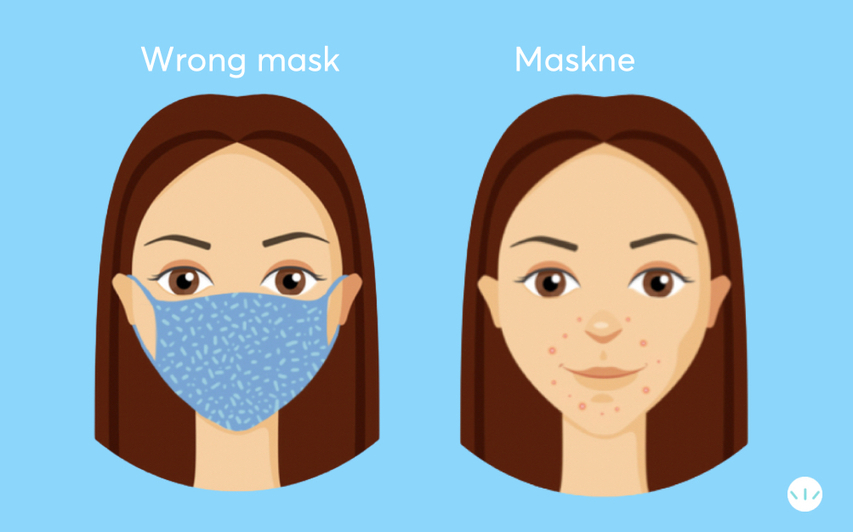
Worst Masks for Acne-Prone Skin
- Polyester or synthetic cloth masks: These trap heat and humidity, creating the perfect environment for acne-causing bacteria.
- Tight-fitting N95 masks: While essential for healthcare professionals, N95 masks are dense and trap moisture, leading to higher risks of friction and acne.
Do Disposable Masks Cause Acne?
Yes. Single-use masks made from synthetic materials like polypropylene trap heat and moisture, contributing to breakouts. Additionally, these masks are a significant environmental concern as they are difficult to recycle and release harmful microplastics into the ecosystem.
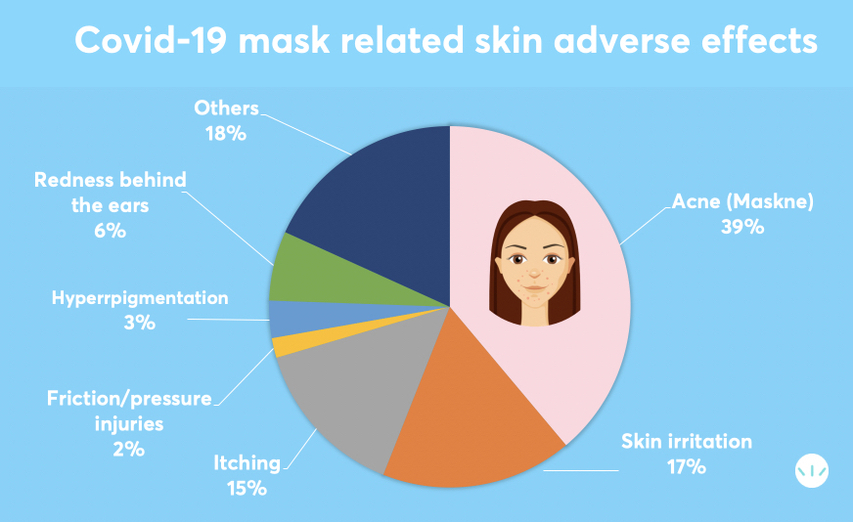
Data source: The Effects of the Face Mask on the Skin Underneath. Journal of Primary Care & Community Health Volume 11: 1–7
Best Masks for Acne-Prone Skin
The best masks for people with acne-prone skin are made from:
- Natural cotton: Lightweight, breathable cotton masks allow airflow and reduce moisture buildup.
- Copper and silver-infused fabrics: These masks harness the antibacterial, antifungal, and antiviral properties of copper and silver to prevent the growth of acne-causing bacteria and fungi.
MDacne's Anti-Acne Mask stands out for its triple-layer cotton design infused with long-lasting copper and silver particles. Unlike masks with surface-sprayed particles, MDacne's mask integrates these elements into all layers for extended protection, even after washing.
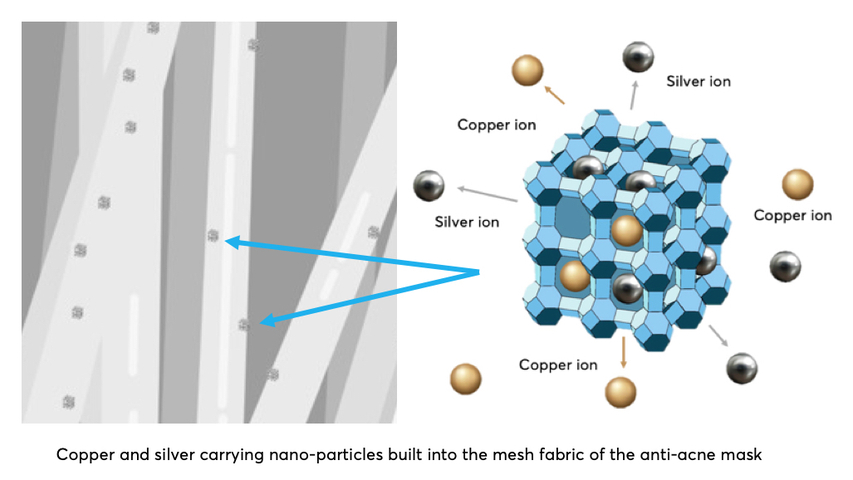
Silk Masks: A Myth for Maskne Relief
While silk pillowcases may benefit acne-prone skin, silk masks are not ideal for preventing maskne. Silk traps moisture, increasing sweat and humidity under the mask.
Caring for Your Cloth Mask
To maintain effectiveness and hygiene:
- Wash your mask every 1-2 days using hot water and a mild, hypoallergenic detergent. Avoid harsh chemicals that can irritate the skin.
- Dry your mask properly on a rack in the sun or in a dryer on a high heat setting.
Face Mask Filtration Power Comparison
A study from Lake Forest Medical Center tested the filtration power of various masks:
- Multi-layer cotton masks filtered 79% of particles.
- Surgical masks filtered 65%.
- Single-layer homemade masks filtered just 1%.
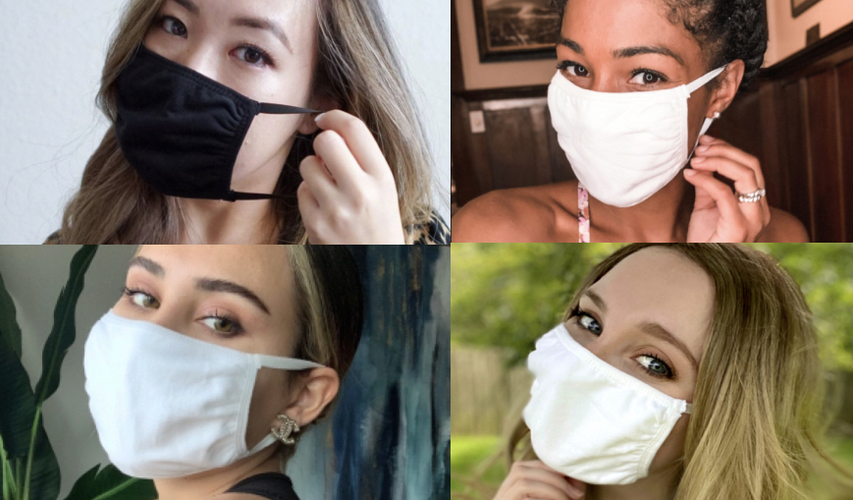
Key Takeaways
For acne-prone skin, prioritize:
- Natural cotton masks over synthetic or disposable ones.
- Masks infused with copper and silver particles for antimicrobial benefits.
- Regular mask hygiene to prevent bacterial buildup and breakouts.
By choosing the right mask and following proper care practices, you can protect both your skin and your health while reducing the risk of maskne.
More info on Anti-Acne Face Mask
Why you need to wear a mask - PBS
To find the right acne treatments for your unique skin, take the free skin assessment by clicking here.



